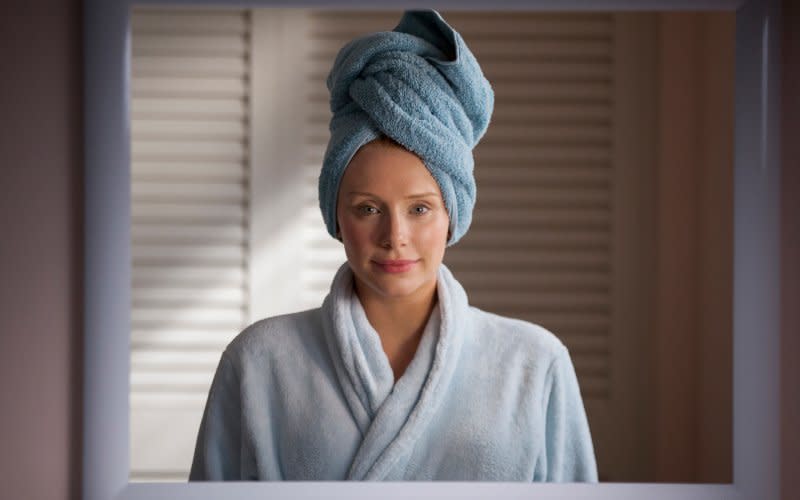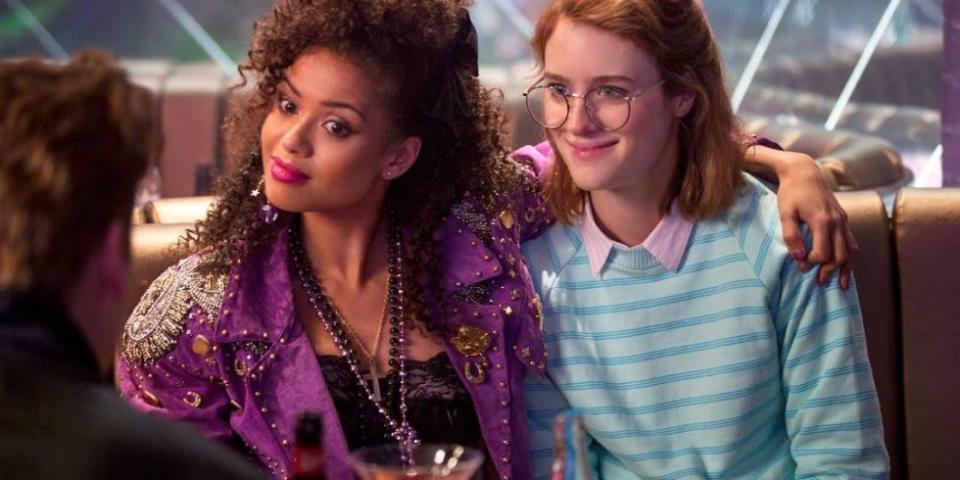Black Mirror: 2016′s most important series?

Credit: Netflix

If you’ve been keeping up on your television over the course of the topsy turvy year, you’ll no doubt have seen the devastation of Cersei’s monstrous mind in the Game of Thrones finale, the nostalgic brilliance of Stranger Things, as well as the natural wonder that is Planet Earth II.
But the most important of all has been Charlie Brooker’s third season of Black Mirror.
Comprising of six varied but equally excellent episodes, viewers familiar with the style of the first two seasons will be aware of its brilliantly formulated satirical genius that laces each episode in very different ways.
Apart from an array of talented actors ranging from Bryce Dallas Howard, to Jerome Flynn, to Gugu Mbatha-Raw, to Benedict Wong, it’s the stories they tell that are most significant and ultimately so timely.

Credit: Netflix
Each instalment brilliantly picks apart one or more aspects of modern life and converts it into an accessible, engaging tale that often seems far-fetched… even though the elements are mere extensions of how we live our lives today.
***Note: Episode-by-episode spoilers to follow***
Episode 1, Nosedive, focuses on the idea being totally and utterly consumed by social media (which we are!) and living off a rating system that essentially determines what class you are - the higher you’re rated (out of 5) the more access you have to the better things in life. Essentially this is a mere extension of how we tweet and Facebook and Instagram every mundane day-to-day event; how we rate our Uber drivers; how we swipe people one way or the other on dating apps like Tinder.
In the second episode, Playtest, virtual reality and a state of psychosis id the focal point. Here the notion of VR seems to be taking off in the public sector, mirroring real life with the release of the PlayStation VR earlier this year. When a man volunteers as a lab rat to test out a Japanese designer’s latest horror game, it becomes a fascinating (as well as scary) look at the powers of merging reality with virtual reality and how merging the two renders them indistinguishable. Will we be living in VR worlds one day?

Credit: Netflix
Shut Up and Dance is a story of online blackmail by an anonymous character who catches youngster Kenny quite literally with his pants down while surfing internet porn. An impending series of events forcing him to carry out a number of illegal tasks or risk having the webcammed self pleasure shared with his family and friends. But there’s a twist that feels rather apt in 2016, which is that, as revealed at the very end, he’s been a penchant for paedophilia.
- Is Planet Earth II the best show on TV right now?
Arguably one of the best episodes is San Junipero which looks at the idea of either experiencing eternal life or going over to what’s perceived as nothingness; the religious equivalent of existing in bliss (heaven) or choosing not to believe at all (and experience absolutely nothing at all). The idea of practising euthanasia seems to be a common, accepted thing in this future, with an Inception-style ability to visit any time in history you wish and actually interact with other ‘dreaming’ people. We see our leads (below) interact in a sort of time travelling dream world stasis - It’s also a refreshing tale of modern sexuality and love encumbered by the ‘what happens wen we die?’ conundrum.

Credit: Netflix
Men Against Fire is perhaps the most stark social commentary in terms of what’s going on today. A narrative about a human army exterminating feral human mutants called Roaches. However, the twist being the literal hypnosis soldiers are under to kill said Roaches who were actually just lower class, less skilled, less able, less intelligent humans who don’t fit a neo-Nazi narrative planned out by the ‘important’ people running the country. It’s quite a scary take on the idea of an abrasive, extreme approach to anti-immigration, especially with the future Trump administration on the horizon and the ever-growing negative foreigner rhetoric in in UK. But more telling is its pushing of the ideology of genocide that’s most shocking, which still occurs in some countries today. There’s even the odd movement from the Alt-Right over a concern of White genocide, which is obviously not a thing, but dangerous in the wrong hands. Nazism, propaganda, mass manipulation are other themes that have emerged this year in plain sight.
And finally the seemingly silly premise of self-thinking robot bees in Hated in the Nation doesn’t sound too serious but it’s actually a very intricate and observant spin on a number of things. Firstly, the concept of increased covert surveillance which was ahead of its time after the UK government only recently passed a law that increases public surveillance to extreme levels… without so much as a whimper from any opposition.

Credit: Netflix
The idea that a social media (well, a version of Twitter) poll could see nasty or arrogant celebs killed off in the popular vote - one appearing strikingly similar to one Katie Hopkins - is also a telling sign of just how seriously people take their social media and that they’re happy to vote for someone to be killed. The notion of the public being horrible and a vile politician who’d do anything to save his own skin is paralleled to how some of us saw David Cameron’s reign collapse, the way people voted in the EU Referendum, as well as how irresponsible politicians have been with public spending and failing to put the people first.
Do you agree that Black Mirror is the most relevant and arguably significant television series of 2016? Share your thoughts in the comments below…
Mike P Williams is a freelance TV, film, music and entertainment writer, with an unhealthy obsession for Game of Thrones. Over the years he’s written for MTV, GamesRadar+, Total Film, BuzzFeed, GoThinkBig, HexJam, Loaded, and regularly scribbles for Yahoo Movies and BBC Radio 1.

 Yahoo News
Yahoo News 
